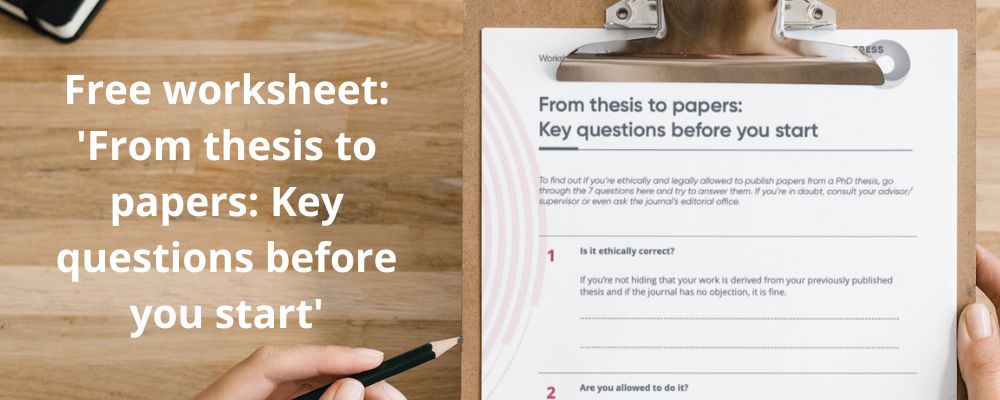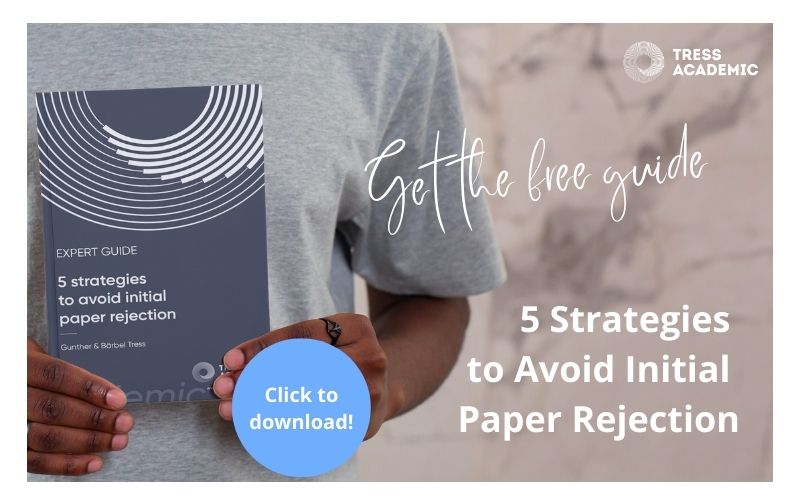- Communications
- Computer Science
- Criminal Justice
- Environmental Management
- Forensic Psychology
- Healthcare Admin
- Human Resources
- Project Management
- Social work
- Special Education
- Sports Management
- Supply Chain Management
- Adult Education
- Business Intelligence
- Early Childhood Education
- Educational Technology
- Homeland Security
- Information Systems Security
- Information Technology
- International Business
- Management Information Systems
- Nonprofit Management
- School Counseling
- Academic Publishing Guide
- Building a Graduate School Resume or CV
- Choosing Between a Thesis or Non-thesis Master's Degree
- Expert Guide to Studying Abroad
- FAQ: Online Master's Degrees
- Grad School Guide Book
- Graduate School for Students with Disabilities
- Green Graduate Degrees
- How to Be a Successful Grad Student
- How to Choose the Right Graduate Program
- How to Get a Master's Degree in an Unrelated Field
- How to Transfer College Credits in Grad School
- How to Write a Winning Personal Statement
- Inside Graduate Admissions
- Ivy League Grad Schools
- Master's Degrees for Veterans
- Master's Degree for Women
- Mental Health in Grad School
- Progressive LGBTQ Graduate Degrees
- Should You Apply for a Graduate School Assistantship?
- Surviving Grad School with a Family
- Taking a Gap Year Before Grad School
- Women in STEM Graduate Resources
- Writing a Successful Statement of Purpose
- Alternative Ways to Pay for School
- The Best Part-Time Jobs During Grad School
- Company Funded Graduate School
- FAFSA For Grad Students
- Financial Aid Resources
- Graduate Student Loans
- Paying for Your Master's Degree
- Paying Off Student Loans
- Paying for Your PhD
- Fellowship Opportunities
- LGBTQ Scholarships
- MBA Scholarships
- Scholarship Resources
- Scholarships for Veterans
- Scholarships for Women
- Crushing the GRE Guidebook
- GMAT Guidebook
- Guide to the LSAT
- MCAT Prep for Medical School
- Study Guide: Exam Resources
- TOEFL Prep for Non-Native English Speakers
- Resources Publish or Perish: Graduate Students' Guide to Publishing

Publish or Perish: Graduate Students' Guide to Publishing
In addition to endless piles of reading, demanding expectations in the classroom, student teaching responsibilities, and the always-looming awareness that they need to research, write, and edit a high-quality dissertation before graduating, today’s Ph.D. students also commonly feel stress about another topic: publishing. As more prospective employers expect degree seekers to get their names in academic journals and conferences while still in school, many learners feel overwhelmed by the prospects of making the grade. The following guide answers some of their most pressing questions, provides guidance on the ins and outs of publishing while still in school, and offers expert advice from a professor who knows better than most what it takes to publish rather than perish.
Understanding Publishing in Graduate School
Getting published as a grad student can feel overwhelming at first, because there’s so much to learn about the process and expectations surrounding it. With a bit of research, however, students can familiarize themselves with the specific language surrounding publishing and make in-roads towards getting their first paper published.
What Does it Mean to Get Published?
Within the context of graduate school, publishing refers to getting essays, papers, and research findings published in one of the academic journals or related forms seen as a leader in the field. As jobs in academia continue to become more competitive, it isn’t enough for learners to simply do well in their coursework. The degree seeker who hopes to land an important post-doctoral fellowship or find a teaching position at a college or university must make themselves stand out in other ways.
When Should a Ph.D. Candidate Get Published?
Getting a paper published takes a lot of time and effort, and those students who wait until the final year or two of a doctoral program may fail to actually have any published materials by the time they graduate. According to the University of Nebraska-Lincoln’s Graduate Connections program , getting a paper published – especially if it’s your first – can take up to three years. In addition to the fact that most journals publish quarterly, the panel review process typically takes a significant amount of time and those submitting for the first or second time usually need to make a large number of edits and complete rewrites in order to reach a publishable standard.
How to Get Published
In order to get published, students submit their work to the journal or conference of their choosing. They frequently also provide a cover letter outlining their research interests. Most journals put out generic calls for submissions once or twice a year, while some may ask for papers addressing specific topics that have a much shorter turnaround time. Grad students may find it intimidating to go up against more seasoned academics, but another option revolves around partnering with their dissertation supervisor or another professor with whom they work closely with to co-author a paper. This not only helps ensure the validity of their findings, but alerts the academic world know that this other, more recognized faculty member believes in the research the student is doing.
Who Should Get Published?
Learners most anxious to get published are those who see their future careers in teaching and research. Because the world of academia is relatively small when divided into individual subjects, it’s important for students who want to break into these ambitious arenas to make a name for themselves early on and create a curriculum vitae that captures the attention of hiring committees.
Where Should Students Get Published?
When deciding which publications to pursue, students should consider the research aims of each and their likelihood of getting published. Newer journals tend to take more submissions as they are still working on building up their roster of contributors. While less venerated than other publications, getting printed in these can help build up name recognition and make it easier to break into the top-tier publications over time.
In terms of where work is published, the majority of students look to academic journals when sending out cover letters and examples of their work. But other options exist as well. Presenting papers at conferences is a popular avenue, as are chapters in books. The following sections takes a more in-depth look at how and where to publish.
Realities & Challenges of Getting Published
Getting published, especially while still in grad school, takes tenacity, focus, and a thick skin. Those who continue working on their craft, presenting at conferences, collaborating with others, and not taking no for an answer, however, frequently find success. Some of the challenges students may encounter include:
Lack of time
It’s no secret that doctoral students have busy schedules that seldom allow for outside – or sometimes, even related – interests to take up much of their days. Because publishing is not a degree requirement, carving out the time needed to research, write, and edit the type of paper required for publishing can feel impossible. With this in mind, student should look for ways to multitask. If presenting at a conference, think about how that paper could be transformed into a journal article.
Lack of confidence
Studies have shown that mental stress and illness frequently increase in grad school as students feel intense pressure to stand out from their peers. These feelings are often intensified when considering publishing, as learners are going up against academics and researchers who have been working in the field far longer than them. It’s important to remember that each of those renowned individuals had to start somewhere.
Lack of funding
Completing the research needed for a competitive paper doesn’t only take time – it requires money. Whether traveling to archives or printing all the necessary documentation, funding for outside research can be scarce while in school. Some programs provide competitive grants for research travel to help offset these costs.
Intense competition
As discussed earlier, competition for publishing is fierce. Academic journals and conferences only have space for so many authors and trying to get noticed can feel like a losing battle. In addition to seeking out newer publications and co-authoring with more notable figures, consider taking part in symposiums at the school you attend to get your foot in the door. While research on the average number of rejections is lacking, don’t feel discouraged if it takes a long time to be chosen for publication.
Finding the right publisher
While getting your name in print within an academic journal you greatly admire is the ultimate goal, it may take some years for it to come to fruition. One of the biggest mistakes students make is applying to ill-suited publications. Look for journals with editorial board members whose names you recognize. If a professor knows one of them, don’t be afraid to ask if they can help get your paper in front of them.
Adequately addressing feedback
Getting a paper published often requires intense editing and even completely restructuring and rewriting what you conceived in the initial abstract. If an academic journal shows interest in your essay but suggests rewrites, pay close attention to their requests and try to work with an advisor to ensure you meet all the stated requirements.
What do Graduate Students Publish?
Academic journals may receive the lion’s share of discussion in the publishing world, but graduate students can actually choose from numerous outlets and paths for getting their work to a larger audience. Students should review the options listed below and think about which format might showcase their work best.
Tips for Publishing
Despite the great amount of work required to publish, students who meet the challenges and persevere stand to position themselves favorably for future job opportunities. The following section addresses some of the most common questions about the process and alleviates general fears about how publishing (or not) reflects upon them.
How many papers should a Ph.D. student try to publish before graduating?
According to scholar-practitioner Dr. Deniece Dortch, no single answer exists. “There is no hard and fast rule as to the number of publications students should have prior to graduation,” she notes. “The reality is students in STEM disciplines and those who use quantitative methods are more likely to have publications prior to graduation because they often work in research teams and labs. This is not to say that qualitative scholars or those in other disciplines aren’t, but it’s a much more standardized practice in STEM for students to graduate with two or three publications. Personally, I had one sole-authored publication accepted prior to graduation, one first-authored piece, and one second-authored piece.”
How many journal articles is it possible to publish during a PhD?
“The answer varies and is determined by factors such as length of program, research team access, and faculty relationships,” says Dr. Dortch. “I’ve seen folks finish with as many as 10 publications, although this is extreme and doesn’t happen often.” She continues, “Imagine you are in a four-year program and you get your idea to write an article in year two. You submit that article in year three after getting approval, collecting data, analyzing it, and then writing your paper. Year three you submit that paper; it may be accepted in year four after months of revisions at the request of the editor. You finally have one published paper as you graduate.”
Are there PhD students who have no journal publications? Should they be worried about that?
“It depends on the type of employment the student is seeking upon graduation,” says Dr. Dortch, “Students applying to or wanting to work in institutions and organizations with the highest levels of research productivity who have no publications may want to consider post-doctoral positions so they have the time and space to work on increasing their publication record after graduation.” She continues, “Postdocs are a very common practice in many disciplines and are used as a way to gain additional training and expertise in research and teaching.”
Is it absolutely essential to have publications to apply for a PhD program?
In a word, no. Individuals working toward doctoral degrees have many reasons for doing so, not all of which require them to publish. Admissions panels also recognize that students focus their efforts on many different goals (e.g. jobs, internships, presenting at symposiums) throughout bachelor’s and master’s programs. As long as learners can demonstrate an ongoing commitment to scholarship, publishing is not an absolute requirement.
Does publish or perish begin before starting a PhD program?
It’s true that many students begin worrying about publishing before starting a Ph.D. program, but the reality is that they have ample time during and after completing a doctorate to make their mark on the world of scholarship. According to a recent article by Inside Higher Ed , some individuals in the academy now wonder if too much emphasis is being placed on grad students publishing. Learners unsure about this should speak to a trusted advisor or mentor to figure out when to focus on getting published.
What is the difference between a published article and a Ph.D. thesis?
While a Ph.D. thesis is required for satisfactory completion of a degree, a published article is not. A Ph.D. also takes a much longer form than a published article, averaging approximately 90,000 words. Academic journal entries, conversely, are usually between 4,000 and 7,000 words.
Should I first write my Ph.D. thesis or publish journal articles?
Though publishing at the doctoral level is increasingly seen as a requirement in the job market, it is not part of degree requirements. With this in mind, students should prioritize the research and writing of their thesis above all else. If they have the time and mental clarity needed to publish journal articles, this can be a secondary focus.
From the Expert
Dr. Deniece Dortch is a scholar-practitioner known for her commitment to diversity, social justice and activism. Dr. Dortch holds a Ph.D. in Educational Leadership & Policy Analysis from the University of Wisconsin-Madison, an Ed.M. in Higher & Postsecondary Education from Columbia University, an M.A. in Intercultural Service, Diversity Leadership & Management from the School for International Training and a B.A. in Spanish from Eastern Michigan University. Hailed a graduate school expert by NPR, she has published numerous articles on the experiences of historically underrepresented undergraduate and graduate students. She is the creator of the African American Doctoral Scholars Initiative at the University of Utah and currently a Visiting Assistant Professor of Higher Education at The George Washington University .
Publishing as a student can feel intimidating. Why is this process important for learners to go through?
Long gone are the days of getting a good job by just having a solid dissertation or an award-winning thesis. Publishing your work while in school demonstrates a commitment to answering and understanding our world’s most complex problems. Further, institutions want to know that you have the capacity to publish. Now, publishing doesn’t mean you have to be first author or that you must publish sole-authored pieces only. Collaboration is also sufficient and often encouraged. The publishing process is intimidating for folks because it involves critique and, most often, rejection.
Receiving and giving critical feedback is part of the learning process and students should not shy away from it because it will only serve them well in the end as they learn to cope with disappointment and reward. But more importantly, there is no point spending months and years conducting research if you are just going to keep your findings to yourself. What you learn is meant to be shared.
What are some common mistakes these learners make when preparing their first papers?
Common mistakes that individuals make include not adhering to the guidelines outlined in the submission process. Examples of this can include ignoring formatting requirements (e.g. APA, MLA, etc.), going over the stated word count, inadequately proofreading, and not submitting a cover letter. This is probably the most important one.
What specific advice do you have for them in terms of finding the right outlet, preparing their work, and submitting to journals?
Students should have multiple individuals read over their work before submission. Writing is a process and even after it is submitted, it will need to be revised many more times before you will read it in print. It is part of the process. To find a good outlet for your work, pay attention to where other scholars are submitting their work. If you’re subject is aligned with theirs, you have a shot. Make a list of at least three outlets that fit your article. Also look out for special calls. A special call for submissions usually goes a lot faster than the regular submission process, so if you’re a student who is about to go on the job market, submit to those first. Also, the more competitive the academic, the longer the process, so keep that in mind. If you are rejected, just re-submit to the the next journal on your list.
In addition to publishing in journals, how else might a student go about getting recognition in their field while still in school?
Apply for all fellowships, grants, and awards that are specific to you and what you do. People in the academy love an award winner and they especially love people whose work has been recognized and/or funded by outside groups. A great way to increase a student’s visibility is to publish outside academic journals and publish in other media outlets. Also attend conferences in your field. Try to get on the program as a presenter or facilitator so that people in your field will start to know who you are and your research interests.
Academic Publishing

From Thesis to Book: A Guide to Publishing Your PhD Research Publishing phd thesis as a book

From thesis to Published Book: Transforming Academic Research into a Wider Audience
Completing a PhD is a tremendous accomplishment that requires dedication, perseverance, and countless hours of research and writing. After years of hard work, it’s only natural to want to share your findings with the wider world. One option for doing so is to publish your thesis as a book.
Turning a thesis into a book can be a rewarding experience, as it allows you to reach a broader audience and share your research with people beyond the academic community. While the process of publishing a book can be daunting, it’s not as complicated as it may seem.
The first step is to determine whether your thesis is suitable for publication as a book. Consider the following questions:
- Does your thesis address a topic that is of interest to a wider audience?
- Can you present your research in a way that is accessible to non-specialists?
- Are there existing books on your topic, and if so, what makes your research unique?
If you believe that your thesis has the potential to be published as a book, the next step is to identify potential publishers. Look for publishers that specialize in your subject area and have a strong track record of publishing academic works. Many publishers have guidelines on their websites that will give you an idea of what they are looking for in a book proposal.
When preparing your book proposal, keep in mind that you will need to present your research in a way that is engaging and accessible to a wider audience. This may require revising some parts of your thesis and presenting your findings in a way that is relevant to non-academic readers.
Once you have submitted your book proposal, be prepared for a long wait. The publishing process can take months or even years, as publishers carefully review proposals and decide which ones to pursue. If your proposal is accepted, you will work closely with an editor to revise and refine your manuscript.
Publishing your thesis as a book can be a rewarding experience that allows you to share your research with a wider audience. With careful planning and preparation, you can turn your thesis into a book that is engaging, accessible, and informative.
Ok, now that we discussed the “why”, let’s elaborate on the “How”.
Easy and fast ways to publish a PhD thesis as a book?
While publishing a PhD thesis as a book is not necessarily an easy or fast process, as was discussed before, there are some steps you can take to make it happen more efficiently.
One option is to self-publish your book . This means that you will need to take care of all aspects of the publishing process, from editing and formatting the manuscript to designing the cover and promoting the book. Self-publishing platforms / publishers such as LAP Publishing which may offer an easier and more accessible route to publishing your work.
Another option is to consider a publisher that specializes in publishing academic books. Some publishers may even offer expedited publication services for PhD theses that have already undergone rigorous review and editing.
It’s also worth considering publishing individual chapters of your thesis as articles in academic journals. This can help increase the visibility of your research and potentially lead to book deals with publishers who are interested in your work.
In any case, it’s important to research publishers and their submission guidelines, prepare a strong book proposal, and work closely with an editor to refine your manuscript. While there may not be a shortcut to publishing your PhD thesis as a book, taking these steps can help streamline the process and increase the likelihood of success.

How expensive is it to publish a PhD thesis as a book?
The cost of publishing a PhD thesis as a book can vary widely depending on several factors, such as the publisher, the length of the book, the number of copies printed, the type of printing, and the marketing budget.
If you decide to self-publish your book, you will need to cover all the costs associated with publishing, such as editing, formatting, cover design, printing, and marketing. However, the cost of self-publishing can vary widely, depending on the services you require and the quality of the work. For example if you self publish your book in the LAP Publishing platform the fee is minimal compared to other publishers. Which allows the option to publish a PhD to a wide variety of authors.
If you go through a traditional academic publisher, there may be some upfront costs associated with the publishing process. For example, some publishers may require an author to pay for the cost of indexing or for any images used in the book. However, most academic publishers will cover the majority of the costs, including editing, formatting, printing, and marketing.
It’s important to note that while the cost of publishing a PhD thesis as a book can be significant, there are also potential financial benefits. For example, some publishers offer royalties on book sales, which can generate income for the author over time. Additionally, publishing a book can enhance an author’s reputation in their field and potentially lead to additional speaking engagements or consulting opportunities.
Overall, the cost of publishing a PhD thesis as a book can vary widely depending on the publishing route you choose, the services required, and the marketing budget. It’s important to carefully research publishers and their costs before making a decision.
Are you a researcher or an author struggling to get your thesis published? Look no further than Lambert Academic Publishing! We offer an easy and affordable publishing process that allows you to share your research with a global audience. With no publishing contract required and professional editing and formatting services included, publishing your thesis with us has never been easier. Plus, our worldwide distribution network ensures that your work will be seen by a wider audience. Don’t let your research go unnoticed – publish your thesis with Lambert Academic Publishing today and take the first step towards sharing your findings with the world!
Leave a Comment Cancel Reply
Your email address will not be published. Required fields are marked *
Save my name, email, and website in this browser for the next time I comment.

How to Publish Your PhD
Out now in paperback and ebook editions.
You’ve passed your viva, you’ve changed your title to Dr on your bank cards. Now you want to turn your thesis into a monograph. You’re keen to get started, but how exactly do you go about it? Do you just need to make a few tweaks here and there? Or are you going to have to rewrite every single word? What on earth is a monograph, anyway?
There’s a lot to understand before you embark upon your writing adventure. This practical book guides you through everything you need to know about academic publishing in the 21st century. You’ll establish your purpose and scope, plan your schedule, approach a publisher, and actually write your book. Catherine Pope draws on her own experience of writing and publishing to support you through each stage of the process.

How to Buy
How to Publish Your PhD is available in paperback and ebook editions. You can order through your favourite online retailer or independent bookstore. The ebook edition is available through Amazon, Apple, Kobo, and all the other major channels. If you’d like to buy in bulk for your institution (20+ copies), please contact me for discounts or any other queries.
ISBN: 978-1-8382429-3-0
Introduction (read for free)
- Starting with Why
- Developing Your Strategy
- When’s the Right Time?
- Can You Afford to Write a Book?
- Deciding on the Appropriate Publication Type
- Understanding What’s Required
- Auditing Your Thesis
- Defining Your Scope
- Mapping Your Book
- The Anatomy of a Monograph
- Setting Some Limits
- Managing Your Time
- Academic Publishing in the 21st Century
- Understanding Rights and Contracts
- Royalties and Getting Paid
- Dealing with Copyright
- Calculating Author Costs
- Choosing Between Publishing and Self-Publishing
- Applying for an Embargo
- Identifying a Suitable Publisher
- Assessing Publishers
- Approaching a Publisher
- Writing a Book Proposal
- What Happens Next?
- Thinking Like a Writer
- Boosting Your Productivity
- Building Your Writing Fortress
- Planning a Piece of Writing
- Creating a Storyboard
- Building a Wireframe
- Avoiding Perfectionism
- Dealing with Competition
- Overcoming Procrastination
- Reviewing Progress
- Getting Feedback on Your Writing
- Strengthening Your Structure
- Improving Flow
- Adding Signposts
- Ensuring Clarity
- Proofreading
- Applying Formatting
- How Much Time Do You Need for Editing?
- Dealing with Readers’ Reports
- Including Your Acknowledgements
- Getting Ready for Final Submission
- Checking the Proofs
- Indexing Your Book
- Promoting Your Book
Conclusion Bibliography & Further Resources

- Privacy Overview
- Strictly Necessary Cookies
- Cookie Policy
This website uses cookies so that we can provide you with the best user experience possible. Cookie information is stored in your browser and performs functions such as recognising you when you return to our website and helping our team to understand which sections of the website you find most interesting and useful. Found out more in our privacy policy .
Strictly Necessary Cookie should be enabled at all times so that we can save your preferences for cookie settings.
If you disable this cookie, we will not be able to save your preferences. This means that every time you visit this website you will need to enable or disable cookies again.
More information about our Cookie Policy
- Find My Rep
You are here
How to Publish Your PhD
- Sarah Caro - Oxford University Press
- Description
Drawing on nearly twenty years in the book business Sarah Caro explains in a clear and accessible way the key issues facing the would-be author. Within the context of today's fast changing world where new technologies and increasing globalization continue to impact on academia and the world of academic publishing, key issues are discussed ranging from whether publishing your PhD is always the best way to enhance your career prospects to whether you should focus on journals or books.
A wealth of practical information and advice is included on:
- choosing a publisher
- revising your thesis
- putting together a proposal
- surviving the review process
- negotiating a contract
- working with your publishers marketing department.
The book is designed to be an easy to use, one stop guide with examples, chapter summaries and further reading. It will be an invaluable resource for emerging researchers across the broadest range of the humanities and social sciences and for all those teaching and advising them, in Europe and the US.
SAGE Study Skills are essential study guides for students of all levels. From how to write great essays and succeeding at university, to writing your undergraduate dissertation and doing postgraduate research, SAGE Study Skills help you get the best from your time at university. Visit the SAGE Study Skills hub for tips, resources and videos on study success!
Supplements
Visit the SAGE Study Skills hub for tips, resources and videos on study success!
Every PhD student should buy a copy of How to Publish your Research before and not after they enroll for a doctoral degree. Informative, practical and insightful, Sarah Caro will become the mentor of every successful PhD student. A mine of information and practical advice, this text is the definitive nuts-and-bolts manual on how to do it. A safe and sure guide. ? ? ? ? ? ?
The book benefits from some mini-case studies of experienced academics’ experiences. These provide a useful alternative perspective. That said, the most valuable parts of the book are those where Caro writes most clearly as a publishing industry insider.
Good supplemental reading early in post-PhD publishing
This book has been recommended to my colleagues who are developing a Teesside University doctorate programme.
Good book with practical advice written in an easy to read style. Good for anyone embarking on a PhD or appropaching completion.
This book contain good practical information on how to get the PhD published.
It is clear and concise with excellents tips.
Preview this book
Sample materials & chapters.
Chapter One PDF
For instructors
Please select a format:
Select a Purchasing Option
Order from:.
- VitalSource
- Amazon Kindle
- Google Play
Related Products


Research Guides
Submit and publish your thesis.
- The Graduate Thesis: What is it?
- Thesis Defences
- Deadlines and Fees
- Formatting in MS Word
- Formatting in LaTeX
- Making Thesis Accessible
- Thesis Embargo
- Review and Release
- Your Rights as an Author
- Re-using Third Party Materials
- Creative Commons Licenses for Theses
- Turning Thesis into an Article
- Turning Thesis into a Book
- Other Venues of Publication
Publishing from your thesis before or after graduation
"Will repository submission affect my publishing plans?"
... this is a common question for someone looking to publish from their thesis before or after graduation.
Most journals welcome submissions based on a thesis or dissertation. Some may have additional requirements, such as to:
- Let them know about the university’s requirement to make your thesis publicly available
- Submit a manuscript that is substantially different than the thesis content
- Embargo the thesis until after publication, etc.
Your steps will depend on the following scenarios:
Scenario 1 - you ARE NOT planning on publishing your thesis before or after graduation
In this case:
- You can submit your thesis without an embargo
- Your thesis will become publicly available in TSpace and Library and Archives Canada after your convocation and will be widely indexed via search engines and indexes
- Use the TSpace-generated permanent URL to share and cite your thesis - see example of such citation below
Tajdaran, K. (2015). Enhancement of Peripheral Nerve Regeneration with Controlled Release of Glial Cell Line-derived Neurotrophic Factor (GDNF) (Master’s Thesis, University of Toronto). Retrieved from http://hdl.handle.net/1807/74747
Scenario 2 - You ARE planning on publishing your thesis AFTER graduation
Most journals are interested in “original, previously unpublished” research. Some journals consider theses as a form of “prior publications”, others do not, and the majority does not have a clear definition. It will be best to check journal policy before you submit your thesis.
Nature Research will consider submissions containing material that has previously formed part of a PhD or other academic thesis which has been published according to the requirements of the institution awarding the qualification.
►►►How to check journal policies:
- MIT Libraries' list of policy excerpts from major publishers
- Journal’s website - usually under Information for Authors or Copyright / Permissions or Editorial Policy; or in the publication agreement if available online
- If such information cannot be located online, contact the editors directly
- If the journal requires that you place an embargo on your thesis until after publication, see the SGS instructions on how to request an embargo on your thesis .
Scenario 3 - You ARE planning on publishing (or have already published) from your thesis BEFORE graduation
You may want or be expected to publish parts of your thesis before your thesis is submitted, such as with an integrated/publication-based/sandwich thesis. The most important thing to keep in mind here is copyright. You own copyright of your written materials, and a publisher may require copyright transfer of your manuscript.
You need to ensure you retain certain rights or obtain permission in order to satisfy the university’s requirement of making your thesis openly accessible via TSpace, ProQuest and Library and Archives Canada (LAC). For more details on these repositories, see the Review and Release section of this guide.
Check whether the journal requires prior notification about U of T’s open access requirement for theses. Some journals want to be notified of this mandate whether or not they restrict the re-use of articles in theses.
Check whether the publisher requires copyright transfer . This should be stated on their website, in the publication agreement, or you can inquire directly with the journal.
If the publisher does not require copyright transfer , i.e. author retains copyright, then you can reuse your article/chapter in your thesis; no permission needed.
If the publisher requires copyright transfer , follow these steps:
Check if the publisher has special provisions for reusing your published work in your thesis. They may permit the inclusion of a non-final version, such as your submitted or accepted manuscript. See more below on understanding different article versions for sharing .
►►►How to check journal policies: See MIT Libraries' list of policy excerpts from major publishers or the journal/publisher website.
For example, Taylor and Francis policy allows to:
Include your article Author’s Original Manuscript (AOM) or Accepted Manuscript(AM) , depending on the embargo period in your thesis or dissertation. The Version of Record cannot be used. https://authorservices.taylorandfrancis.com/copyright-and-you/
Check if the article is distributed under a Creative Commons license. This may allow re-use.
►►►How to check journal's CC license: See the journal/publisher website or contact the journal directly.
If the publisher requires copyright transfer, has no special provisions and does not publish under a CC license, you will need to contact them to request permission to include your article in your thesis. You can:
- Negotiate making the article available as part of the thesis in TSpace, ProQuest, and LAC Theses Portal;
- Request an embargo [link to Lisa’ section on embargo] if the publisher only permits open sharing after some time post-publication;
- If permission is denied you may include in place of the chapter an abstract and a link to the article on the journal website.
If you have specific questions about your situation, publisher policy or author rights, contact the Scholarly Communications and Copyright Office at [email protected] for a consultation (best before you publish!)
Understanding different versions of a published article
A publisher may distinguish between the versions of an article that you may be allowed to include in your thesis:
- Submitted manuscript / pre-print - version you initially send in (often permitted)
- Accepted manuscript / post-print - version after peer review but before copyediting, layout editing, formatting, etc. (sometimes permitted; publisher may require an embargo/access restriction for a period of time)
- Version of record / final publisher’s PDF - version that appears in the journal (many publishers do not permit sharing this version)
►►►How to check article versions permitted for sharing:
- MIT Libraries’s list of policy excerpts from major publishers
- Sherpa/RoMEO database of publisher policies
- Journal’s website - usually under Information for Authors or Copyright/Permissions or Editorial Policy; or in the publication agreement if available online
- << Previous: Creative Commons Licenses for Theses
- Next: Turning Thesis into an Article >>
- Last Updated: Sep 15, 2023 3:23 PM
- URL: https://guides.library.utoronto.ca/thesis
Library links
- Library Home
- Renew items and pay fines
- Library hours
- Engineering
- UT Mississauga Library
- UT Scarborough Library
- Information Commons
- All libraries
University of Toronto Libraries 130 St. George St.,Toronto, ON, M5S 1A5 [email protected] 416-978-8450 Map About web accessibility . Tell us about a web accessibility problem . About online privacy and data collection .
© University of Toronto . All rights reserved. Terms and conditions.
Connect with us
- more social media
PhDLife Blog
Sharing PhD experiences across the University of Warwick and beyond
Getting your thesis published

Wondering how to go about getting your thesis published? In this guide Georgina Collins provides information for early career researchers on the process of converting your thesis into a published book.

From PhD to publication
Following the PhD, if you wish to remain in academia or move into a related profession, publishing your thesis is often considered essential. Few PhD theses are published in their original form; the PhD is an academic exercise aimed at gaining a qualification and a set of skills, whereas a book is intended to be read by others. Converting your thesis into a book can be used as a building block to an academic career, to influence your discipline and expand your knowledge of the field.
One practical way in which the academic exercise and publication process differ is over copyright. Your thesis may contain content which is copyrighted to others that you will need permission from rights owners to include in publication.
Adapting a thesis
When adapting your thesis for publication you should take into account the shift in audience: as a thesis your work had a very small readership, but when published it should attract a much larger one. How will you go about amending your thesis to achieve this?
You will also need to consider whether to publish your thesis as a monograph or series of articles. Bear in mind the advice you have been given by supervisors and examiners.
Consider how these decisions may affect your employability. Sometimes three or four strong papers in refereed journals can be better when applying for jobs than having to wait several years for a monograph to come out.
You should also consider how you will balance your publication commitments alongside the inevitable post-doctoral challenges of finding a job, teaching, and pursuing new areas of research.
Choosing a publisher
There are different types of publishers – university presses and commercial presses are the most common ones. Some will pay you, while others that will expect a publishing subsidy from you. It is important to get a good sense of the range of publishers in your field, the kinds of work they publish, and their different strengths. Consider how your work could enhance their current series.
You may also consider how you wish to pitch your book – at a general readership, a trade audience or a specialist academic audience. Whether your thesis is published or not is usually decided by the commissioning editor or editorial board. That decision will be made on the grounds of intellectual coherence, whether the research is cutting edge, and also if the book is commercially viable.
Writing a book proposal
A major step in the process of publishing your thesis is getting the book proposal right. Make sure you read publishers’ guidelines. Catch their eye by being brief and punchy. Carefully proofread your work and do not just cut and paste an abstract from your thesis. There are four key criteria to consider:
- Rigour – is it a scholarly piece of work?
- Significance – is it talking to a wide audience?
- Originality – are you doing something brand new?
- Marketability – is the book commercially viable?
Your goal is to convince them that your book will be essential reading in your field.
Rewards, royalties and subsidies
In the UK, research is judged by the Research Excellence Framework (REF) which is based on peer review. Therefore, whether you are paid or have paid to be published should not make a difference to how your work is viewed: it is the opinion of your peers that will matter.
Most of the big presses do not charge and have very well-established peer review systems of their own – so on the whole, work published by these large publishers tends to be of a higher standard. The ultimate prize is a contract with royalties, but unless your first book is a trade book that will have a huge impact, do not expect much. Also bear in mind whether your publisher is tying you in for your next book – this could be either a good or bad thing.
If you are required to pay a publishing subsidy, find out who is expected to pay. Many university departments will only pay if the book is likely to form part of an REF submission, which means it will have to reach a certain quality threshold – three-star or four-star in REF terms.
With these smaller publishers, you may have to do much of the quality control, proofing and marketing yourself. If this is the case, you may choose instead to go for articles – but on the other hand, sometime these publishers can provide you with a quick turnaround which will allow you to move on to the next book or project.
The challenges of PhD publication
Don’t leave it too long to publish your thesis. PhDs are perishable and the literature review and methodological foundations will often be out of date after five or six years.
This article is based on a paper given by Professor Charles Forsdick, Series Editor at Liverpool University Press. Listen to his paper in full here . (podcast of event: Publishing Your Thesis in the Humanities and Social Sciences)
Click here for a guide to publishing for first-timers.
Image: Alex Proimos, Wikicommons
Share this:
15 thoughts on “ getting your thesis published ”.
- Pingback: Approaching a publisher | PhD Life
I’m amazed, I must say. Seldom do I come acroas a blog that’s both equally educative and amusing, and without a doubt, you’ve hit the nail on thhe head. The issue is something which not enough folks are speaking intelligently about. Now i’m very happy that I stumbled across this in my search for something relating to this.
I want to publish my thesis but its been 5yrs now
Depending on the field that you were researching and the intended output format, I guess you would have to check whether something similar has already been published. If not, I cannot see why, following updates in literature and other parts where needed, you would not be able to write a proposal, either for a monograph, a chapter in an edited volume or something else. 🙂
Good luck! Ana
This is Really Nice Post & Appreciating for reading this piece of blog.
Does anyone publish a PhD on line?
Thanks for your comment. I’m not sure are you referring to publishing the actual thesis or a monograph/papers based on it? I think quite a few people do the former, for example in the UK most PhD students are obliged to leave their thesis with university’s repository (I believe you can choose the period of time after which you’d like to make it available to the public). Some are available in larger repositories, like http://ethos.bl.uk/Home.do , and in some cases the funding body might have special regulations regarding this.
In terms of reworking your thesis into a monograph, I suppose you could do it online (publishing or self-publishing), but do consider the impact you are trying to achieve.
All the best, Ana, PhD Life
I was thinking of a web site on which the whole PhD was published as approved by the University with search tags to find content
I want to publish my Ph D thesis in form of book
I want to publish my thesis into book
I want to publish my thesis on ‘Investigation of Bio mass Stirling Engine’ into book
How can i publish my MS thesis online, can you help me with it?
Hi, publishing a thesis is a very individual process and it’s hard to give specific advice for your question. I’d highly recommend speaking to your supervisor and other academics in your faculty as a starting point. Best of luck! -Jessica
- Pingback: Como publicar sua tese? – Biblioteca Prof. Lydio Machado Bandeira de Mello – Faculdade de Direito da UFMG
- Pingback: Titl - comparison and contrast essays blog posts
Comments are closed.
Want the latest PhD Life posts direct to your inbox? Subscribe below.
Type your email…
Blog at WordPress.com.

- Already have a WordPress.com account? Log in now.
- Subscribe Subscribed
- Copy shortlink
- Report this content
- View post in Reader
- Manage subscriptions
- Collapse this bar

- Publication Process
How to Write a Journal Article from a Thesis
- 3 minute read
- 204.9K views
Table of Contents
You are almost done with your PhD thesis and want to convert it into a journal article. Or, you’re initiating a career as a journal writer and intend to use your thesis as a starting point for an article. Whatever your situation, turning a thesis into a journal article is a logical step and a process that eventually every researcher completes. But…how to start?
The first thing to know about converting a thesis into a journal article is how different they are:
Thesis Characteristics:
- Meets academic requirements
- Reviewed by select committee members
- Contains chapters
- Lengthy, no word limits
- Table of contents
- Lengthy research of literature
- IRB approval described in detail
- Description and copies of tools used
- All findings presented
- Verb tenses may vary
Journal Article Characteristics:
- Meets journalistic standards
- Reviewed by a panel of “blind” reviewers
- Word limits
- Manuscript format
- Succinct research of literature
- IRB described in 1 to 3 sentences
- Essential and succinct tool information
- Selected findings presented
- Verb tenses are fairly consistent
Converting your thesis to a journal article may be complex, but it’s not impossible.
A thesis is a document of academic nature, so it’s more detailed in content. A journal article, however, is shorter, highlighting key points in a more succinct format. Adapting a thesis for conversion into a journal article is a time-consuming and intricate process that can take you away from other important work. In that case, Elsevier’s Language Editing services may help you focus on important matters and provide a high-quality text for submission in no time at all.
If you are going to convert a thesis into a journal article, with or without professional help, here is a list of some of the steps you will likely have to go through:
1. Identify the best journal for your work
- Ensure that your article is within the journal’s aim and scope. How to find the right journal? Find out more .
- Check the journal’s recommended structure and reference style
2. Shorten the length of your thesis
- Treat your thesis as a separate work
- Paraphrase but do not distort meaning
- Select and repurpose parts of your thesis
3. Reformat the introduction as an abstract
- Shorten the introduction to 100-150 words, but maintain key topics to hold the reader’s attention.
- Use the introduction and discussion as basis for the abstract
4. Modify the introduction
- If your thesis has more than one research question or hypothesis, which are not all relevant for your paper, consider combining your research questions or focusing on just one for the article
- Use previously published papers (at least three) from the target journal as examples
5. Tighten the methods section
- Keep the discussion about your research approach short
6. Report main findings in the results
- Expose your main findings in the results section in concise statements
7. Discussion must be clear and concise
- Begin by providing an interpretation of your results: “What is it that we have learned from your research?”
- Situate the findings to the literature
- Discuss how your findings expand known or previous perspectives
- Briefly present ways in which future studies can build upon your work and address limitations in your study
8. Limit the number of references
- To choose the most relevant and recent
- To format them correctly
- Consider using a reference manager system (e.g. Mendeley ) to make your life easier
If you are not a proficient English speaker, the task of converting a thesis into a journal article might make it even more difficult. At Elsevier’s Language Editing services we ensure that your manuscript is written in correct scientific English before submission. Our professional proofers and editors check your manuscript in detail, taking your text as our own and with the guarantee of maximum text quality.
Language editing services by Elsevier Author Services:

- Research Process
How to Choose a Journal to Submit an Article

- Publication Recognition
How to Submit a Paper for Publication in a Journal
You may also like.

Publishing Biomedical Research: What Rules Should You Follow?


Writing an Effective Cover Letter for Manuscript Resubmission

Journal Acceptance Rates: Everything You Need to Know

Research Data Storage and Retention

How to Find and Select Reviewers for Journal Articles

How to Request the Addition of an Extra Author Before Publication

Paper Rejection: Common Reasons
Input your search keywords and press Enter.
- SpringerLink shop
Revising your thesis into a book
Springer will consider submissions containing material that has previously formed part of a PhD or other academic thesis including those that have been made publicly available according to the requirements of the institution awarding the qualification.
- Find My Rep
You are here
How to Publish Your PhD
- Sarah Caro - Oxford University Press
- Description
- Author(s) / Editor(s)
How to Publish Your PhD is the first book to provide students with a comprehensive and authoritative guide to publishing their research.
Drawing on nearly twenty years in the book business Sarah Caro explains in a clear and accessible way the key issues facing the would-be author. Within the context of today's fast changing world where new technologies and increasing globalization continue to impact on academia and the world of academic publishing, key issues are discussed ranging from whether publishing your PhD is always the best way to enhance your career prospects to whether you should focus on journals or books.
A wealth of practical information and advice is included on:
- Choosing a publisher
- Revising your thesis
- Putting together a proposal
- Surviving the review process
- Negotiating a contract
- Working with your publishers marketing department
The book is designed to be an easy to use, one stop guide with examples, chapter summaries, and further reading. It will be an invaluable resource for students across the broadest range of the humanities and social sciences and for all those teaching and advising them, in Europe and the US.
Supplements
Visit the SAGE Study Skills hub for tips, resources and videos on study success!
Every PhD student should buy a copy of How to Publish your Research before and not after they enroll for a doctoral degree. Informative, practical and insightful, Sarah Caro will become the mentor of every successful PhD student. A mine of information and practical advice, this text is the definitive nuts-and-bolts manual on how to do it. A safe and sure guide. ? ? ? ? ? ?
The book benefits from some mini-case studies of experienced academics’ experiences. These provide a useful alternative perspective. That said, the most valuable parts of the book are those where Caro writes most clearly as a publishing industry insider.
Good supplemental reading early in post-PhD publishing
This book has been recommended to my colleagues who are developing a Teesside University doctorate programme.
Good book with practical advice written in an easy to read style. Good for anyone embarking on a PhD or appropaching completion.
This book contain good practical information on how to get the PhD published.
It is clear and concise with excellents tips.
Preview this book
Sample materials & chapters.
Chapter One PDF
For instructors
Purchasing options.
Please select a format:
Order from:
- Buy from SAGE
Related Products


How to Get Your Thesis Published
Writing a thesis is tough. Current or recent graduate students understand the time and effort required to successfully complete their research program. Indeed, graduate training involves extensive amounts of research that often reflects years of failures and successes. This research often leads to some type of novel insight, which is organized into either a t hesis paper or dissertation.
When writing a dissertation or a thesis , there is much to consider. Both require extensive amounts of work and reflect the years of research conducted by the student. Some universities require that students publish this final research in peer-reviewed journals prior to being considered eligible to graduate. Meanwhile, others do not require the thesis to be officially published. Ultimately, regardless of the graduation requirements, certain career tracks for PhDs or Master’s students require publication in peer-reviewed journals.
Graduate Writing
The type of graduate writing that is required by a student’s university depends upon where the graduate student has studied. In Europe, a doctoral thesis reflects original research, whereas, in the USA, a thesis is often a shorter document associated with a Master’s degree.
Whatever the title, extensive research projects are organized into a final document. Some of these written documents can be formatted into a book. Before publishing, a graduate student should consider several factors prior to publishing. Namely, the student should ask, is my research
- Rigorous: Is it methodical, scholarly work?
- Significant: Why does it matter to your potential audience?
- Original: Is it novel and unique?
- Marketable: Are there potential customers?
When to Publish?
In the past, universities have published theses graduation research summaries in only a hard copy format, such as a bound book. Now, some theses or dissertations are available online, often with a Creative Commons license. This can be a problem due to the requirement by journals that manuscripts contain only unpublished and original data. However, generally, a thesis or dissertation consisting of original, previously unpublished research that has been made available by your home institution does not prevent you from publishing. Rather, journals will consider these theses and dissertations that were published by universities as, understandably, still sufficiently novel data. Furthermore, peer review is an integral component of publication. To pass the muster of peer review, it is important to consider the feedback of dissertation or thesis committee. The critiques of your committee will often mirror the potential concerns of your peer reviewers.
Related: Planning to publish your Ph.D. research in a good journal? Check these journal selection guidelines now!
Tips and Common Concerns
When going to publish your dissertation, there are generally some common errors made by graduate students.
First, it is generally a good practice to reference or acknowledge the thesis. Since the dissertation may be available publicly, it is important to be transparent about the source of the data. Similarly, always inform journals that some research contained within a thesis or dissertation was published either in a print-only version or in an online repository.
You can publish your thesis as a monograph or a series of articles. It can depend on the type of thesis.
- Traditional thesis: It is usually in the form of chapters and is an original work written by an individual student.
- Thesis by publication: It consists of papers that have already been published in a journal.
According to COPE guidelines , when thesis contains original unpublished work, it should not be considered as prior publication. Therefore, it is acceptable to be published as a manuscript or a monograph in a journal, even if it is available freely in university repositories and Creative Common license may or may not apply. However, if the thesis is of the second type, then the papers will be considered as prior publication and are not acceptable as original works for publication. As a research lab hosts student’s work, it is important to first review the policies of your host university. Similarly, since fields transform rapidly, don’t wait too long before publishing. If you do, you run the risk of your literature review or methodology becoming outdated.
I have my dissertation i want to published
THANKS A LOT
Rate this article Cancel Reply
Your email address will not be published.

Enago Academy's Most Popular Articles

- Manuscripts & Grants
- Reporting Research
Writing a Research Literature Review? — Here are tips to guide you through!
Literature review is both a process and a product. It involves searching within a defined…

How to Develop a Good Research Hypothesis
The story of a research study begins by asking a question. Researchers all around the…

- Publishing Research
- Submitting Manuscripts
13 Tips to Prepare for Your PhD Dissertation Defense
How well do you know your project? Years of experiments, analysis of results, and tons…

- Career Corner
- PhDs & Postdocs
How to Manage Your PhD Timeline for Smoother Research Completion
It’s finally happening! The university has sent you an acceptance letter for the PhD program you had applied to. Getting into a…

- Journal Guidelines
How to Use CSE Style While Drafting Scientific Manuscripts
What is CSE Style Guide? CSE stands for Council of Science Editors. Originated in the…
Top 12 Potential PhD Viva Questions and How to Answer Them
When Your Thesis Advisor Asks You to Quit
Virtual Defense: Top 5 Online Thesis Defense Tips

Sign-up to read more
Subscribe for free to get unrestricted access to all our resources on research writing and academic publishing including:
- 2000+ blog articles
- 50+ Webinars
- 10+ Expert podcasts
- 50+ Infographics
- 10+ Checklists
- Research Guides
We hate spam too. We promise to protect your privacy and never spam you.
I am looking for Editing/ Proofreading services for my manuscript Tentative date of next journal submission:

What should universities' stance be on AI tools in research and academic writing?

UCL Doctoral School
- Self-Plagiarism

Guidance on incorporating published work in your thesis
How you can include published work in your thesis and avoid self-plagiarism
Doctoral candidates who are worried about what they can include in their thesis can follow this guidance. It covers the inclusion of previously published papers and how to integrate them properly.
Publishing first, then submitting thesis for examination
If you've published before submitting your thesis:
- an appropriate citation of the original source in the relevant Chapter; and
- completing the UCL Research Paper Declaration form – this should be embedded after the Acknowledgments page in the thesis.
- Before using figures, table sheets, or parts of the text, find out from the editor of the journal if you transferred the copyrights when you submitted the paper.
- When in doubt, when you do not own copyright, get formal approval from copyright owners to re-use the material (this is frequently done for previously published data and figures to be included in a doctoral thesis; please see more information on the UCL Copyright advice website ).
- ensure the style matches that of the rest of the thesis, both in formatting and content,
- add additional information/context where beneficial, such as additional background/relevant literature, more detailed methods,
- offer additional data not included in the publication, such as preliminary data, null findings, anything included in supplementary materials.
- If you worked together with co-authors, your (and their) contributions to the publication should be specified in the UCL Research Paper Declaration form.
Examples of including previously published work in your thesis
After gaining approval from the copyright holder, you would be allowed to copy and paste sections from the published paper into your thesis.
You might make minor edits to the text to ensure that it fits the overall style of your thesis (e.g. changing “We” to “I”, where appropriate) and that it is written in your voice (see bullet point on ‘Initial drafts of papers’ below).
You might also incorporate additional text/figures/Tables that did not appear in the original publication.
Unacceptable
You cannot embed the unedited pdf of the published paper into your thesis.
You also cannot copy and paste the entire paper without making any attempt to match the style to the rest of the thesis.
Submitting thesis first (and the degree is successfully awarded) and published after
If your thesis is published first, then this must be declared to a journal publisher so that you can check with the editor about the acceptability of including part of your thesis.
You must make sure that you have cited the original source correctly (your thesis for example) and acknowledged yourself as author. Where possible, you could also provide a link.
This applies not just to reproducing your own material but also to ideas which you have previously published elsewhere.
Tips for reusing material in final thesis
We strongly recommend you write your upgrade document (and/or any progression documents) in the same style and format as you would your final thesis. This will help you plan the format of your final thesis early and you can then reuse as much of your upgrade material in your final thesis as makes sense.
Initial drafts of papers
We strongly recommend you keep your initial drafts of papers for use in your final thesis; this way it is written in your voice (not that of your supervisors, co-authors, or journal editor) and will be less likely to affect any copyright issues with the publisher. This does not mean you cannot incorporate supervisor corrections; however, all text should be written by you and not subject to vast rewriting/editing by others as is often the case with journal publications. You should still cite your published work where relevant.
Plan your thesis structure and project timings carefully from the start
This means considering thesis structure, time of upgrade/progression reviews, and, if appropriate, which chapters might be turned into publications and when.
Prioritise the thesis over any other priorities
Furthermore, as you approach the final months before your submission deadline (which you should check carefully with your supervisory team and funder as expectations may vary), we strongly encourage you to prioritise the thesis over any other conflicting priorities, e.g. internships, publications, etc…
Remember to follow these guidelines to ensure the appropriate use of published work in your doctoral thesis while avoiding self-plagiarism.
What is Self-Plagiarism
The UCL Academic Manual describes self-plagiarism as:
“The reproduction or resubmission of a student’s own work which has been submitted for assessment at UCL or any other institution. This does not include earlier formative drafts of the particular assessment, or instances where the department has explicitly permitted the re-use of formative assessments but does include all other formative work except where permitted.”
Read about this in more detail in Chapter 6, Section 9.2d of the UCL Academic Manual page .
How self-plagiarism applies to Doctoral Students
Re-use of material already used for a previous degree.
A research student commits self-plagiarism if they incorporate material (text, data, ideas) from a previous academic degree (e.g., Master's of Undergraduate) submission, whether at UCL or another institution, into their final these without explicit declaration.
Note on Upgrades
The upgrade report is not published nor is it used to confer a degree, and is therefore excluded from the above definition of “material”.
In effect, the upgrade report (and any other progression reviews) is a form of “thesis draft” owned by the student and we encourage the reuse of material in the upgrade report in the final thesis where relevant.
As a result, material written by yourself can be used both in publications and your final thesis, and the self-plagiarism rule does not apply here. However, since your final thesis will be ‘published’ online, there are several rules you must follow.
For additonal detail, visit the UCL Discovery web page .
Links to forms
UCL Research Paper Declaration Form for including published material in your thesis (to be embedded after the Acknowledgements page).
- Form in MS Word format (DOCX)
- Form in LaTeX format (TEX) , thanks to David Sheard, Dept of Mathematics
- Form in PDF preview (PDF)
Helpful resources
- Step-by-step guide and FAQs on publishing doctoral work
- Information about your own copyright
- Information on online copy of your thesis
Imperial College London Imperial College London
Latest news.

Imperial academic wins €2.4m European funding to improve solar harvesting tech

Meningococcal vaccine is cost effective at protecting men against gonorrhoea

Shape-shifting cancer cell discovery reveals potential skin cancer drug targets
- Scholarly Communication
- Research and Innovation
- Support for staff
- Open access
- Preparing your thesis
Publishing material from your thesis
Your rights to publish.
You retain the copyright in your thesis unless:
- your research is sponsored or funded by a funder with a claim on the intellectual property
- your research builds upon existing intellectual property generated by, or jointly invented with, Imperial employees or associates
- you are concurrently an employee of Imperial College London during your period of study
For details see Intellectual property
In principle, you may reproduce, or give others permission to reproduce, parts or the whole of your thesis but you must consider:
- third party works and the permission you have been given to use them - if your permission does not extend to the intended use, send a second permission request to the owner of the third party copyright work
- any plans to apply for a patent application, meaning that you must postpone communication of your research through an embargo
Discuss any of the above issues with your supervisor.
Publishing in a journal
Journals generally accept papers based on work already written up in a thesis. Individual journal polices on what a journal considers to be prior publication can be found within the ‘information for authors’ section of the journal website. The United Kingdom Council of Research Repositories (UKCoRR) have produced this Thesis prior publications spreadsheet on some of the publisher policies that you can use as guidance. If a publisher is concerned that your thesis has already been published online, you may apply for an embargo .
Your paper should be a reworking of the material in your thesis and written to conform to the journal's style guide. The course (publication section), offered by the Graduate School, offers helps and tips.
When quoting from your thesis or reusing figures, avoid self-plagiarism by citing and referencing any extracts copied or adapted from your thesis appropriately.
Publishing your whole thesis
If you intend to publish your thesis or are approached by a publisher, request a copy of the publishing agreement before signing it - make sure that publication is in your best interests and will not restrict your future use of the content.
Get Published
- About this guide
- Publishing strategy
- Selecting a journal
- Evaluating journals
- Open Access publishing
- Choose a conference
Publishing from your thesis
Examples of publisher's policies, got invited to publish a book.
- Publishing processes
- Author rights & copyright
- Publishing guidelines
Worried your open access thesis will compromise your article publishing?
Some researchers may have been questioned or refused acceptance for self-plagiarism. Many publishers use plagiarism checkers like Turnitin on the initial submission and this will find postgraduate theses on Tuwhera.
Consider the following before you submit your articles:
- Check the publisher's policy on their website.
- Check publisher's policy - this document lists some key publishers' statements regarding pre-publication and open access theses.
- Whether you are writing a book or an article from your thesis, make sure you have rewritten your research substantially.
- Negotiate an agreement with your publisher to ensure that you are able to use your research in your thesis for your article or book.
- Make sure that you have gained permissions for using any 3rd party copyright materials in your publications.
- Turning your PhD into a successful book Taylor and Francis
- Converting your PhD Thesis into a Book in Five Steps Elsevier Author Services
Some postgraduates may be contacted by "Print on Demand" (POD) publishers offering to publish their research as a book. POD publishers publish theses in a PDF format with an ISBN number. Theses are then listed on Amazon and other bookseller sites. A hard copy is printed when someone makes a request. Typically such emails come from a publisher called VDM (Verlag Dr. Mueller) or any publishing units associated with LAP (Lambert Academic Publishing).
While you own the copyright in your work and are therefore free to decide what to do with it, we advise that you consider these points before proceeding:
- Unlike traditional publishing, the works are not vetted, peer reviewed or professionally edited.
- Your research is already available on Tuwhera, without cost or restriction, for other researchers and students around the world to read.
- You may be asked to sign away the copyright in your own work. Look at the terms and conditions very carefully and consider seeking legal advice before signing.
- Publishing in this way is very likely to harm your chances of publishing your research with a traditional and often more reputable publisher.
In addition to requesting a copy of their author-publisher agreement, here are some things you should try to ascertain before making a decision:
- What is the quality of the printed books (jackets, binding, etc)?
- What is the royalty share you will receive? With POD, as with vanity publishing, you have very little certainty as to the number of books that will be sold.
- What will the publisher do to market/promote your work?
- Will people be able to obtain your thesis only through this publisher from now on? Will they require that your thesis be removed from Tuwhera ?
Vanity Press
The difference between predatory publishers and vanity press. "Predatory publishers claim to have a working peer review, but actually it’s either not present or it’s substantially flawed. Vanity press, on the other hand, never claim to have a peer review process – therefore they are usually perfectly legal businesses." From Bealll's List . Be careful about sending your work to these publishers.
- << Previous: Choose a conference
- Next: Publishing processes >>
- Last Updated: Jan 26, 2024 11:18 AM
- URL: https://aut.ac.nz.libguides.com/getting_published
- Skip to primary navigation
- Skip to main content
- Skip to footer
Tress Academic

#123: Publishing papers from a PhD thesis
May 17, 2022 by Tress Academic
If you have completed your PhD with a monograph, AKA a thesis, you might wonder if you can convert your thesis into journal papers. Are you allowed to do this, and what is the best way to do it? Here, we describe the steps you should consider when you convert your PhD thesis into papers.
Converting a monograph PhD thesis into papers is a great idea, particularly if you want a career in academia. Papers are the current currency in academic career development. You want to show others that you’ve done good work. And if you have not written papers alongside the monograph, it seems obvious to consider writing papers based on your PhD project after the monograph is completed. Journal papers will help spread the results of your PhD study in your community; papers have a better reach and are easier to consume by your peers than a monograph thesis. So there are very good reasons to publish papers from a PhD thesis!
Of course you could have written papers from the start, but if your PhD ended with a monograph, it is pointless starting such a discussion now. There are often many practical reasons why you published a monograph and not papers. For more details on this discussion, see our post #6, Dissertation dilemma? Hand in a monograph or papers?
What counts now is that you’re considering getting more out of your thesis by turning some of your thesis work into papers. We want to help you with these 10 steps that you can follow:
1. Answer these essential questions first
Successfully completed PhD researchers often ask the question: “Can I publish papers from my monograph?” In general, we say: “Yes, you can, but … you first must determine whether you’re allowed to publish your work with regard to permissions, copyright, ethics, originality, plagiarism, and foreign language versions.” If you’re unsure on these issues, please have a critical look at the 7 questions that we’ve prepared for you in the free worksheet “Key questions before you start.” Once you’ve checked this and you know you’re allowed to publish your work, follow the remaining steps outlined below.

2. Select content from your thesis
The structure and extent of detail vary between PhD monographs and journal papers. Don’t aim to include all of your thesis in one paper—this will likely result in a too long, too broad, and less interesting paper. Readers of journal papers often look for answers and input on specific problems, and your thesis encompasses too many problems and topics. Select one of the topics from your thesis for one paper, and another one for another paper, if you like. Of course, you can write several papers from your thesis, and also several paper types. Have a look at post #28 about What type of journal paper to write?
3. Don’t copy and paste but rewrite and update
You might feel tempted to copy whole sections, if not chapters, from your thesis and paste them into your paper.Don’t do it! A journal paper is less wordy and has a different internal logic than a monograph chapter. It is much better to rewrite what you wrote in the monograph and update it with new references or information where necessary and possible. Doing so will strengthen the originality of this new paper compared to your monograph!
4. What is original in your work?
Space in the journal paper is very limited, and so you should try to fill it with your most original work. In a monograph, you typically give the reader the big picture of a problem, including its historical development. Cut this down in your paper and focus on your work. You can assume that the readers of your paper are from your field, and they will know a lot about the background already. They are more interested in the new stuff that you’re contributing to the field.
5. Start with the most important work
You may plan to write at least 3, 4, or even 5 papers from your PhD work. If you can do this, you should definitely go for it, but sometimes life moves on and there isn’t enough time to follow through on all the plans we have. Most likely, you will only manage to write 1 or 2 papers from your monograph because you are working on a new project or a new position and there’s a lot of work to do there. To prevent running out of time to write up the really cool stuff from your PhD study, start writing the first paper on this stuff first. Pick your most important work from your PhD study and make sure it gets published. If something else comes up afterwards, you at least got this important work out there!

6. Transfer your introduction into a review paper
An obvious paper to write from your PhD monograph is a review paper. You have most likely done a detailed literature study on your PhD topic in a separate chapter of your thesis. This would be a great starting point for a literature review on the topic as you’ve done most of the work already. You would need to focus on a specific aspect for your review, report how you selected the literature in the first place, and look for recent updates to the literature since you did the review for your thesis. Then, identify a journal that could be interested in a review on this topic and go for it. Check our two posts #50, Mastering the literature review during the Corona lockdown , and #91, Find the right journal for your paper following these 8 steps for further help.
7. Tell the journal
In your cover letter, tell the journal editors that your submitted paper is based on your (un-)published PhD thesis and include the reference to it. Be very clear and open about it and don’t try to hide it, but also make it clear to the journal that you consider your paper a valuable and original contribution to the wider readership of the journal. Journals are not against publishing work from PhD theses in general as they would not consider a thesis a formal publication.
8. Cite your thesis
It’s not enough to tell the editors that your work is derived from your PhD monograph–make this clear to your readers and actively cite your PhD monograph. No need to cite it all the time in the paper–either pick a prominent place within your paper to cite it or add it to the acknowledgment section.
9. Limit the number of references
A PhD monograph is often a reference work where interested readers can find all the important literature that has been published on the topic so far. That’s not needed in a journal paper. Here, you’ll write for readers who are experts in the field, just like you. Of course you should refer to the most recent relevant studies and give credit to all the work you used, but don’t provide any additional references.

10. Keep your text short
How many pages is your monograph? About 100, 200, or more? However long, it is far longer than the paper you’re going to write and this can make it difficult to pare down. You’ll probably think that your paper is too short and then you’ll add one more paragraph and another because there’s plenty of material to take from the monograph. Don’t be afraid when your paper looks skinny next to your monograph–if all relevant, and not all available information is included, it’s the right length!
For any academic career you might pursue, having a selection of papers that detail your work is indispensable! Therefore, seriously consider turning some of the material from your PhD monograph into journal papers—only the material you’re most proud of. You’ll need to check first that you’re not running into any ethical or legal conflict by doing so, and you’ll also need to consider the specific rules within your academic field. A great source for help is the website of the Imperial College London (2022), and our worksheet Key questions before you start will help you double-check, but for most cases, it won’t be a problem to turn your thesis into papers. In fact we think it is a great idea, and encourage you to do so!
Resources:
- Free worksheet: Key questions before you start
- Smart Academics Blog #6: Dissertation dilemma? Hand in a monograph or papers?
- Smart Academics Blog #28: What type of journal paper to write?
- Smart Academics Blog #50: Mastering the literature review during the Corona lockdown
- Smart Academics Blog #91: Find the right journal for your paper following these 8 steps
- Imperial College London, 2022. Publishing material from your thesis . Accessed 9 May 2022.
More information:
Do you want to successfully write and publish a journal paper? If so, please sign up to receive our free guides.
Photo by Aaron Burdon on Unsplash
© 2022 Tress Academic
Doctor of Philosophy in Chemistry
Get your phd in chemistry.
Thank you for your interest in the graduate program at the University of Iowa Department of Chemistry. The Department has had a chemistry PhD program for over 75 years and consists of over 25 research faculty, approximately 130 graduate students, and over 20 postdoctoral associates, research scientists and visiting scholars. Our graduates and postdocs have accepted positions at leading academic and industrial institutions, national laboratories and government facilities, as well as some non-traditional Ph.D. careers.
The Chemistry Building and adjacent Iowa Advanced Technology Laboratory house state-of-the-art laboratories, research support facilities, classrooms, and conference rooms spaces. Extensive resources are readily accessible such as NMR , mass spectrometry , and MatFab facility for fabrication and analysis which houses our X-ray facility and numerous other instruments . The department also supports advanced computational resources, and complete machine, electronics, and glass shops . In addition to strong programs in the core areas of analytical, inorganic, organic, and physical chemistry, we offer cross-discipline research opportunities in emerging areas such as (bio)catalysis, natural product synthesis, materials, surface science, bioinorganic chemistry, chemical sensors, chemical education research, and environmental and atmospheric chemistry.
All Ph.D. students with an accepted offer and good standing with the Department of chemistry are guaranteed financial support, including an annual stipend, tuition remission, and employee benefits such as health insurance. Additional funding to support student research is available from a variety of internal and external sources .
For more information, contact the graduate program by e-mail at [email protected] .
Student resources
- First year student guide
- Annual review resources
- Teaching assistant resources
- Postdoctoral scholar resources
- Thesis and dissertation
- General catalog
- Current courses
Degree requirements
Proficiency requirement.
Students must demonstrate basic proficiency in three chosen sub-disciplines of chemistry (analytical, biochemistry, inorganic, organic, physical). Proficiency is established in one of the following ways: Scoring at the 50th percentile level (national norm) on the proficiency exam, completing a one-semester review course with a grade of C or better (courses specified below), or completing a one-semester graduate-level/advanced course in that sub-discipline of chemistry with a grade of B or better. The proficiency requirement must be fulfilled before the beginning of the student's third semester in the graduate program.
Review courses
Courses currently designated as review courses are:
- CHEM:4171 (formerly 4:171): Advanced Analytical Chemistry
- BIOC:3120 (formerly 99:120): Biochemistry and Molecular Biology I
- CHEM:4270 (formerly 4:170): Advanced Inorganic Chemistry
- CHEM:4372 (formerly 4:172): Advanced Organic Chemistry
- CHEM:4431 (formerly 4:131): Physical Chemistry I
Advanced course requirement
Beyond the proficiency requirements, students must complete a minimum of four additional advanced courses, totaling at least eleven semester hours of graduate credit, by the end of their fourth semester in residence. Research, seminar, and pedagogy credits; courses that are listed with lower division undergraduate level numbers; and courses taken with the S/U grade option cannot be used to fulfill this requirement. Transfer credits may be applied to a portion of this requirement. Students are encouraged to develop a detailed plan with their research advisor and discuss with the graduate education committee as needed.
Courses that meet the Advanced Course criteria
Graduate Advisory Committee
Before the beginning of the third semester, after a permanent advisor has been appointed, a Graduate Academic Committee (GAC) of four faculty, at least three from Chemistry, will be formed for each student with a PhD degree objective. GACs will be composed of at least four faculty, at least three from Chemistry, who agree to support and advise the student during the course of the Ph.D. and beyond. GAC members will meet the student to discuss research progress and provide feedback and guidance as appropriate.
The committee will consist of the research advisor and three additional members who are nominated by the student, subject to the advisor’s approval, and assigned by the Graduate Education Committee (GEC).
Comprehensive examination
The comprehensive examination is designed to assess the student's overall progress, knowledge of fundamental chemical principles and chosen area of specialization, and general competency for PhD research. To be eligible to take the Comprehensive Examination, the student must have completed the advanced coursework requirement and maintain a cumulative average of 3.00 or greater on appropriate graduate coursework at The University of Iowa. The comprehensive examination must be completed by the end of the fourth semester in residence, unless written consent for an extension is received from the GAC and is approved by the Director of Graduate Studies.
The comprehensive examination is a two-part process consisting of a written research report and an oral defense of the report. The written document and oral defense are evaluated by the student’s GAC. Each member of the GAC will use a departmentally prescribed rubric to score the oral exam . The exam typically occurs in a student’s fourth semester in residence.
Seminar requirements
Each student is expected to give a minimum of two acceptable seminars. One seminar must cover the student's research. The other may also deal with the student's research, or can be an extensive literature report. The student may register for the appropriate divisional seminar course and receive letter grade credit during those semesters in which the seminars are presented. The final PhD defense cannot be used to meet this requirement.
The research conference/three-month seminar
At least three months before the anticipated final defense, the PhD candidate must meet with their graduate academic committee. If scheduling permits, the research work can be reported as a research seminar during a regularly scheduled divisional seminar, with a subsequent committee meeting for questions and advice.
Final defense of the PhD dissertation
The Dean of the Graduate College will make a public announcement of a candidate’s final defense three weeks prior to the exam date. This final oral examination is open to the public. Dissertation copies must be made available to all members of the examining committee not later than two weeks before the examination date.
Milestones toward the PhD
The milestones on the path toward earning your PhD in chemistry at the University of Iowa are described below. These are illustrative of a typical student; most students follow this path, but some variations are possible.
Typical timelines for PhD completion
Create your academic path.
You'll find degree overviews, requirements, course lists, academic plans, and more to help you plan your education and explore your possibilities.
Current course list
The MyUI Schedule displays registered courses for a particular session and is available to enrolled students. The list view includes course instructors, time and location, and features to drop courses or change sections.

IMAGES
VIDEO
COMMENTS
N.B. these points are from the Routledge guidelines, for other publishers, check their websites! 1. A Statement of Aims. Briefly and concisely state the main themes and objectives of the proposed book: 1-2. Provide a concise (150-200 words) and compelling abstract for the book. 2.
STEP 3: Read and understand the Licensing and Rights sections of the publishing agreement. This agreement grants ProQuest/UMI the right to reproduce and disseminate your work according to the choices you make. This is a non-exclusive right; you may grant others the right to use your dissertation or thesis as well.
Publish or Perish: Graduate Students' Guide to Publishing. In addition to endless piles of reading, demanding expectations in the classroom, student teaching responsibilities, and the always-looming awareness that they need to research, write, and edit a high-quality dissertation before graduating, today's Ph.D. students also commonly feel ...
Using parts of a PhD thesis in a book requires that ongoing and/or collaborative research is being conducted. A book (perhaps co-authored) should be greater than the sum of its constituent parts. Using an aspect of a PhD thesis in an edited book on a broader topic ensures that the research fits with related research on a similar theme.
After completing a PhD program, publishing your dissertation can help launch your career. Earning a doctoral degree is a huge achievement. But if you're like most, the degree itself is not your end goal. You want a PhD or a doctoral degree like a DBA because it can help further your career. The same principle should apply to your doctoral ...
press, the aim of this article is to provide a brief guide to the process of converting and publishing a PhD thesis from the publisher's perspective. There can be a lot of pressure on successful doctoral candidates and junior researchers to convert and publish their PhD thesis. The publication of a first monograph can strongly contribute to the
The bottom line is that how to structure a PhD thesis often depends on your university and department guidelines. But, let's take a look at a general PhD thesis format. We'll look at the main sections, and how to connect them to each other. We'll also examine different hints and tips for each of the sections.
The cost of publishing a PhD thesis as a book can vary widely depending on several factors, such as the publisher, the length of the book, the number of copies printed, the type of printing, and the marketing budget. If you decide to self-publish your book, you will need to cover all the costs associated with publishing, such as editing ...
You can order through your favourite online retailer or independent bookstore. The ebook edition is available through Amazon, Apple, Kobo, and all the other major channels. If you'd like to buy in bulk for your institution (20+ copies), please contact me for discounts or any other queries. Buy How to Publish Your PhD. ISBN: 978-1-8382429-3-0.
A wealth of practical information and advice is included on: choosing a publisher. revising your thesis. putting together a proposal. surviving the review process. negotiating a contract. working with your publishers marketing department. The book is designed to be an easy to use, one stop guide with examples, chapter summaries and further reading.
You can submit your thesis without an embargo. Your thesis will become publicly available in TSpace and Library and Archives Canada after your convocation and will be widely indexed via search engines and indexes. Use the TSpace-generated permanent URL to share and cite your thesis - see example of such citation below. Tajdaran, K. (2015).
Once a decision is made to convert your dissertation or thesis into a manuscript for submission to a journal, you will want to focus attention on adapting it for publication. By attending to brevity and focus, writing style, relevant literature review and data analyses, and appropriate interpretation of the results or findings, you can enhance ...
To convert a thesis/dissertation into a journal article, it has to be rewritten and refined. More often, a journal article is crafted based on an excerpt or a chapter of a thesis, and sometimes, multiple articles can be published based on different thesis chapters. The journal article undergoes further revisions during peer review, which makes ...
Following the PhD, if you wish to remain in academia or move into a related profession, publishing your thesis is often considered essential. Few PhD theses are published in their original form; the PhD is an academic exercise aimed at gaining a qualification and a set of skills, whereas a book is intended to be read by others.
2. Shorten the length of your thesis. Treat your thesis as a separate work. Paraphrase but do not distort meaning. Select and repurpose parts of your thesis. 3. Reformat the introduction as an abstract. Shorten the introduction to 100-150 words, but maintain key topics to hold the reader's attention.
Revising your thesis into a book. Springer will consider submissions containing material that has previously formed part of a PhD or other academic thesis including those that have been made publicly available according to the requirements of the institution awarding the qualification.
Author (s) / Editor (s) How to Publish Your PhD is the first book to provide students with a comprehensive and authoritative guide to publishing their research. Drawing on nearly twenty years in the book business Sarah Caro explains in a clear and accessible way the key issues facing the would-be author. Within the context of today's fast ...
Since the dissertation may be available publicly, it is important to be transparent about the source of the data. Similarly, always inform journals that some research contained within a thesis or dissertation was published either in a print-only version or in an online repository. You can publish your thesis as a monograph or a series of articles.
Submitting thesis first (and the degree is successfully awarded) and published after. If your thesis is published first, then this must be declared to a journal publisher so that you can check with the editor about the acceptability of including part of your thesis. You must make sure that you have cited the original source correctly (your ...
PhD candidates usually publish parts of their thesis as scientific journal articles. Publishing parts of your thesis before your thesis is submitted poses no problems. However, if you plan to submit manuscripts to journals after your thesis has been submitted, you may need to have an embargo placed on your thesis.
In principle, you may reproduce, or give others permission to reproduce, parts or the whole of your thesis but you must consider: Discuss any of the above issues with your supervisor. Publishing in a journal. Journals generally accept papers based on work already written up in a thesis. Individual journal polices on what a journal considers to ...
Check publisher's policy - this document lists some key publishers' statements regarding pre-publication and open access theses. Whether you are writing a book or an article from your thesis, make sure you have rewritten your research substantially. Negotiate an agreement with your publisher to ensure that you are able to use your research in ...
Once you've checked this and you know you're allowed to publish your work, follow the remaining steps outlined below. 2. Select content from your thesis. The structure and extent of detail vary between PhD monographs and journal papers. Don't aim to include all of your thesis in one paper—this will likely result in a too long, too broad ...
After an extensive study, researcher Jimmy de Rooij published his PhD thesis on March 27. More for You. ... 25 human foods you should never give your dog—and 25 foods you can.
The Department has had a chemistry PhD program for over 75 years and consists of over 25 research faculty, approximately 130 graduate students, and over 20 postdoctoral associates, research scientists and visiting scholars. Our graduates and postdocs have accepted positions at leading academic and industrial institutions, national laboratories ...